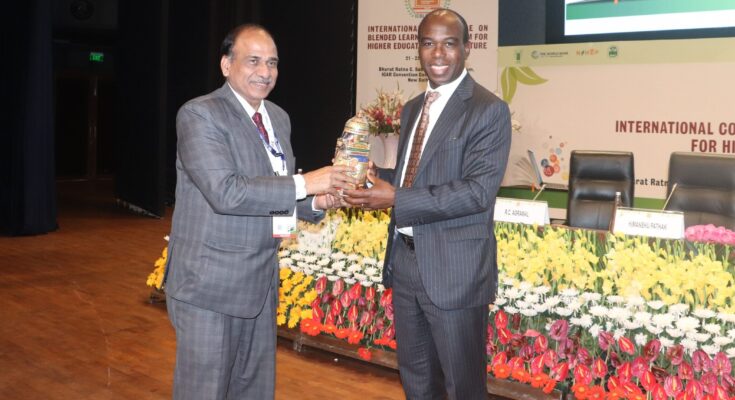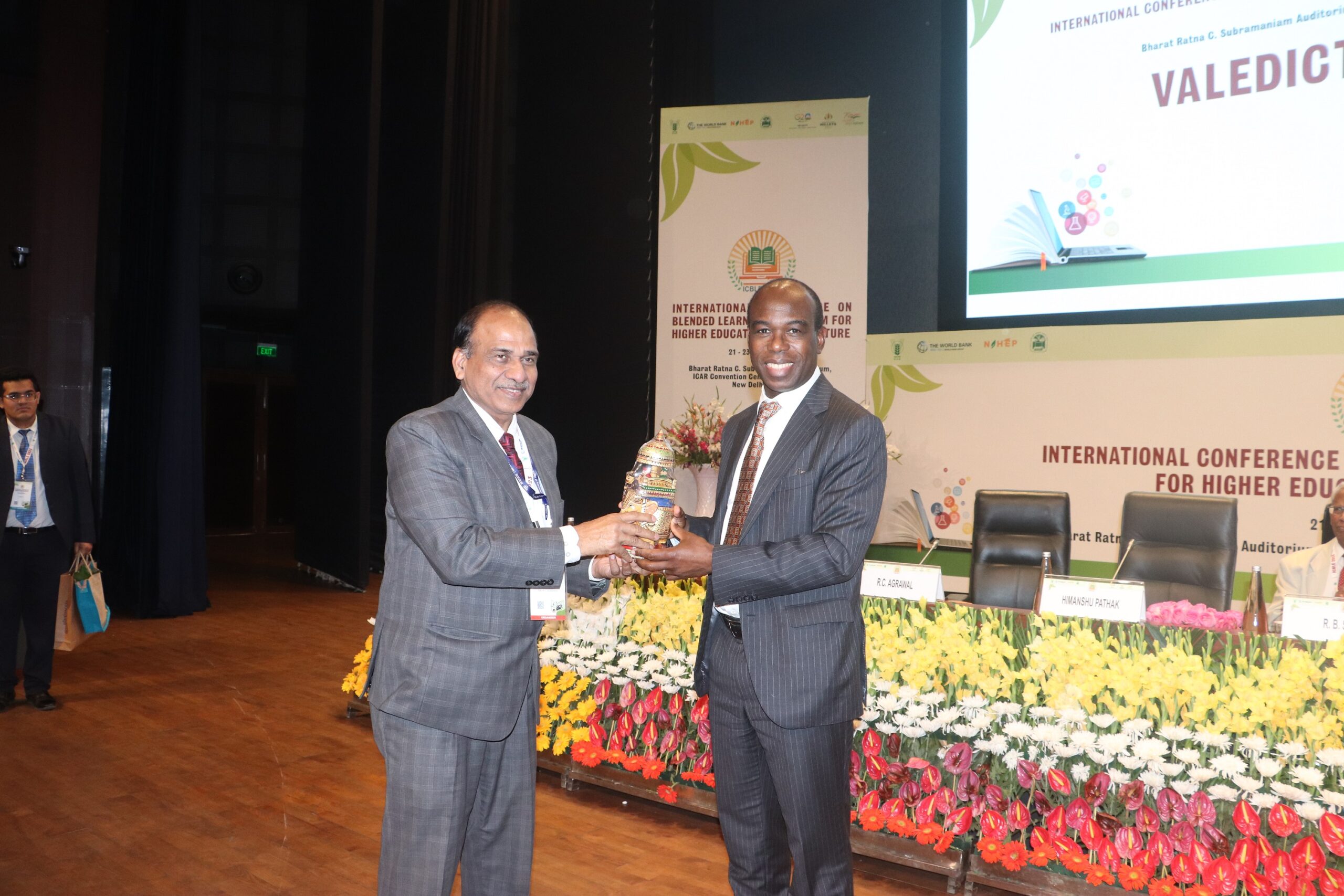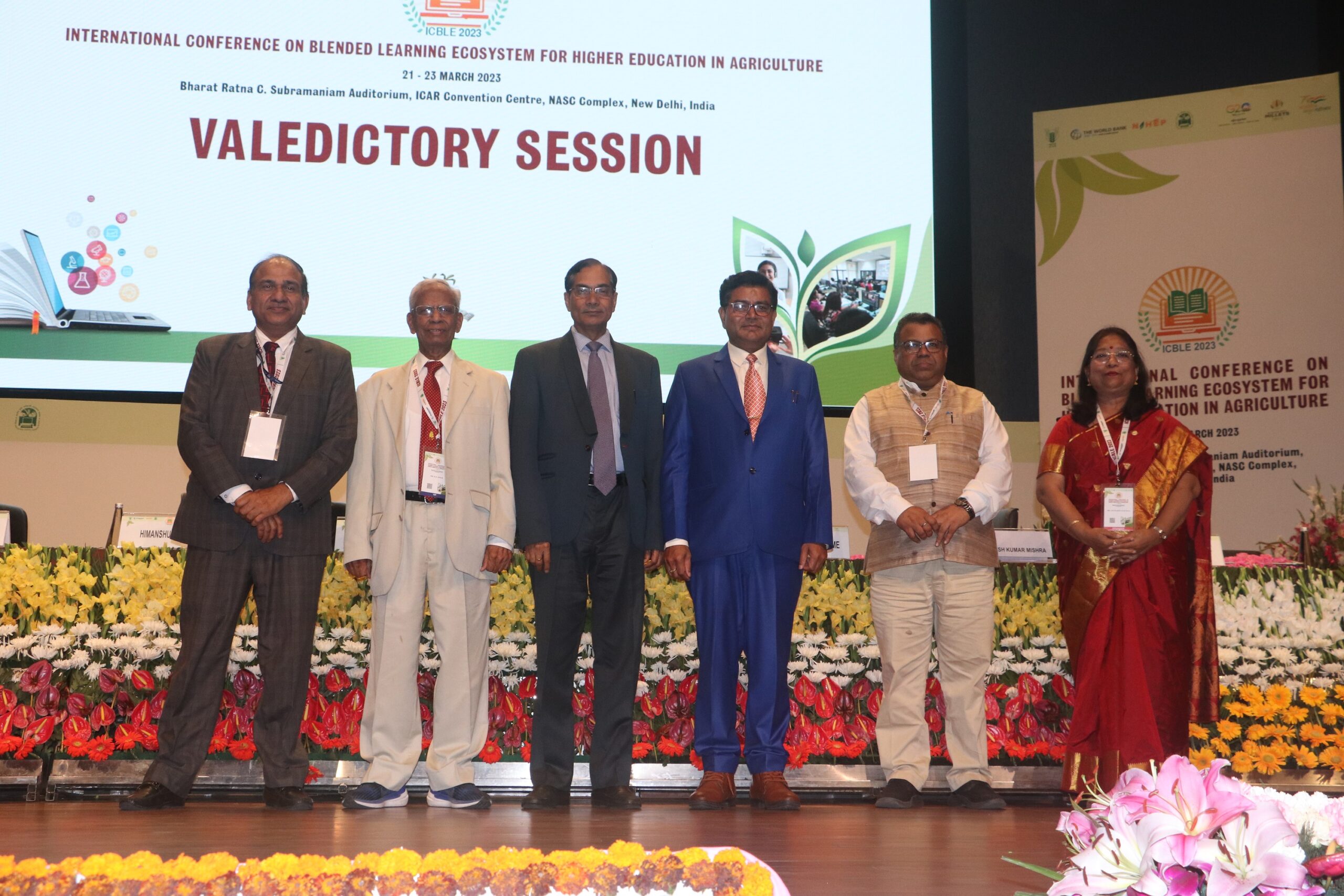ICAR and World Bank issue Delhi Declaration on Modernisation of Agricultural Education System at International Conference on Blended Learning Ecosystem
- Declaration highlights need to strengthen digital Infrastructure including digital e-learning content and deployment of emerging immersive technologies across Agricultural Higher Education Institutions
- Calls for a system-wide Digital Capacity Building Program across stakeholders –
New Delhi, March 28, 2023.
There is a need to strengthen digital Infrastructure including digital e-learning content and deployment of emerging im mersive technologies across Agricultural Higher Education Institutions in India. Institutionalizing a system-wide Digital Capacity Building Program across stakeholders to improve systemic digital competence, knowledge and skills is also a necessity.
The Delhi Declaration on Modernisation of Agricultural Education System in alignment with the National Educ ation Policy issued jointly by The Indian Council of Agricultural Research (ICAR) and the World Bank highlights the need to incorporate digital resources and tools for effective and accessible teaching and learning in Agricult ure. It lays emphasis towards creating a renewed and resilient system for gender-inclusive and sustainable educ ation that will pave the way for the India’s agriculture education sector. Multidisciplinary technology-facilitated education should be promoted and the policies on Science, Technology, Engineering, Agriculture and Mathemat ics (STEAM) in agricultural higher education need to be transformed.
The Delhi Declaration was unveiled on the concluding day of the successful three-day International Conference on Blended Learning Ecosystem for Higher Education in Agriculture 2023 hosted jointly by the ICAR and the Wo rld Bank. The Conference was held as part of the National Agricultural Higher Education Project’s (NAHEP) Res ilient Agricultural Education System (RAES) development initiative.
Undertaken to strengthen the National Agricultural Education System in the country, NAHEP is a five-year proj ect initiated in 2018 with equal contribution of $82.5 million (about Rs 600 crore) each from the World Bank and the central government. The World Bank loan is to be repaid over 19 years after a grace period of five years, The purpose of NAHEP is to transform agricultural higher education. The Blended Learning Platform is part of the pr oject.
Speaking at the valedictory session, Dr R B Singh, Former President of National Academy of Agricultural Scienc es (NAAS) and Chairman, Agricultural Scientists Recruitment Board (ASRB) said, “By promoting sustainable develo pment goals through the dissemination of knowledge and skills, we empower the next generation of agricultural leaders t o meet the challenges of tomorrow. Let us continue to collaborate across borders and disciplines, to ensure that agricultu re remains a force for positive change in the world.”
According to Dr Trilochan Mohapatra, Former Secretary Department of Agricultural Research and Education (D ARE) and Director General, ICAR, Ministry of Agriculture and Farmers Welfare, “Education is the backbone of a th riving agricultural sector. Blended learning offers a powerful tool to bridge the gap between traditional classroom tea ch ing and the demands of a rapidly changing world. I urge all stakeholders to embrace it and integrate it into our education systems. It is important for us to embrace new methods and technologies to strengthen the agriculture education system and develop a skilled workforce that can contribute to the growth of the agriculture sector.”
Commenting on the success of the conference, Dr R C Agrawal, Deputy Director General (Agricultural Educa tio n) ICAR and National Director, NAHEP, said, “The 3-day international conference saw around 19 keynote speakers an d panel discussions on six important topics focusing on blended learning in agriculture. We would like to express our grat itude to the Government of India for introducing NAHEP and the World Bank for their constant support. The sustainable development of agriculture depends on the quality and relevance of education that we provide to the future generation of agricultural professionals.”
“India’s agricultural sector pays a massive significance on the country’s economy. Every year, more than 5000 Indian stu dents receive PhDs, which is more than the rest of the globe. I believe NAHEP is the perfect example of how opportunities can be provided for vocational education as it has given platform to another initiative called Resilient Agricultural Educa tion System (RAES). We will continue working with the ICAR and the Government of India to disseminate new technolo gi es so that all states of the country can benefit equally from them,” said Dr Auguste Tano Kouame, Country Director, the World Bank.
Dr Shailesh Kumar Mishra, Director (Extension), Ministry of Agriculture and Dr Anuradha Agrawal, National Co ordinator, NAHEP (Component 2 and CAAST) ICAR New Delhi also graced the valedictory session with their pr esence.
The event witnessed participation of delegates from 10 countries along with several academicians, experts, and industry leaders in panel discussions on topics related to blended learning in higher education for agriculture. Th e Conference featured panel discussions on various topics, including the role of technology in agriculture educat ion, the use of digital tools for blended learning, the challenges and opportunities of online learning, and the futu re of blended learning in agriculture.
About Indian Council for Agricultural Research:
The Indian Council of Agricultural Research (ICAR) is an autonomous organisation under the Department of Agri cultural Research and Education (DARE), Ministry of Agriculture and Farmers Welfare, Government of India. Th e Council is the apex body for co-ordinating, guiding and managing research and education in agriculture includi ng horticulture, fisheries, and animal sciences in the entire country. With 111 ICAR institutes and 71 agricultural universities spread across the country, it is one of the largest national agricultural systems in the world. The ICA R has played a pioneering role in ushering Green Revolution and subsequent developments in agriculture in Indi a through its research and technology development.
About World Bank:
The World Bank is like a cooperative, made up of 189 member countries. These member countries, or sharehold ers, are represented by a Board of Governors, who are the ultimate policymakers at the World Bank. Founded in 1944, the International Bank for Reconstruction and Development—soon called the World Bank—has expanded to a closely associated group of five development institutions. The Bank Group works with country governments the private sector, civil society organizations, regional development banks, think tanks, and other international i nstitutions on issues ranging from climate change, conflict, and food security to education, agriculture, finance, a nd trade.



